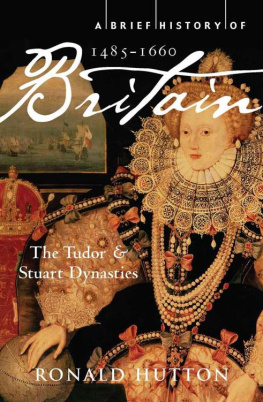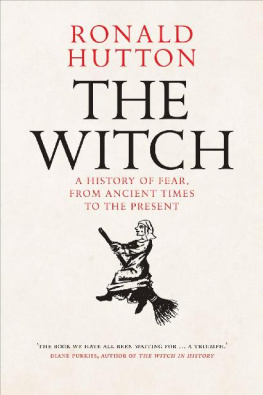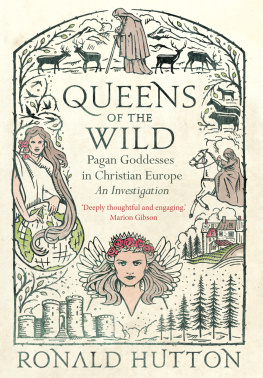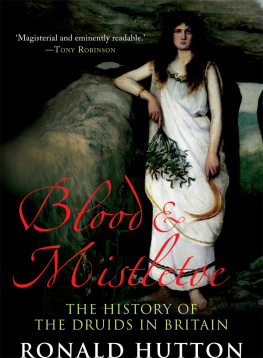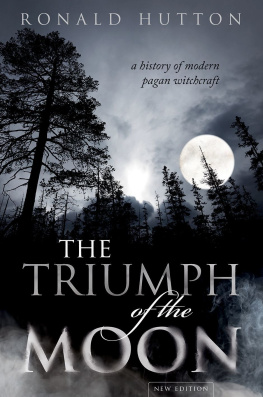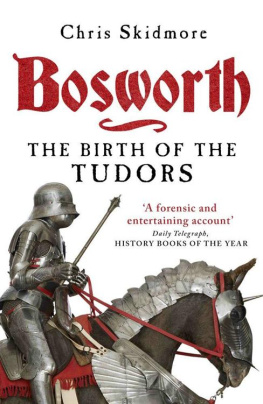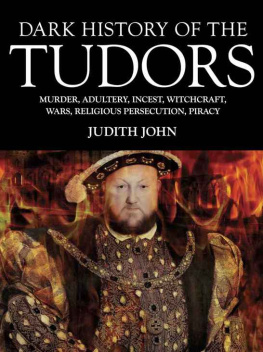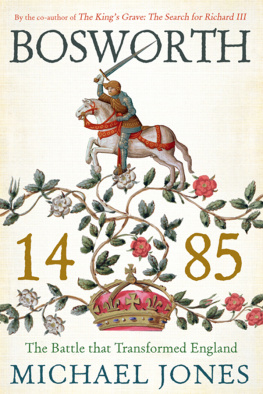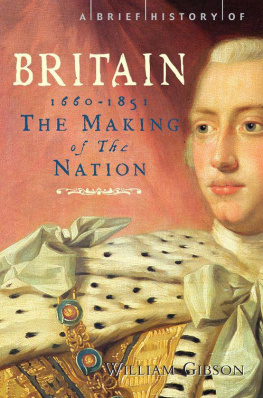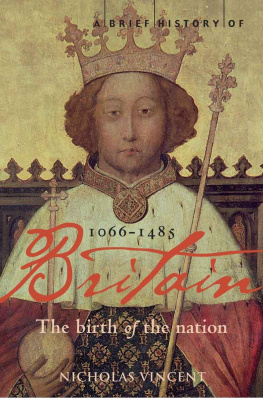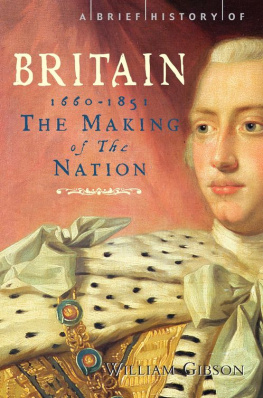A BRIEF HISTORY OF BRITAIN 14851660
RONALD HUTTON
CONTENTS
ACKNOWLEDGEMENTS
Back in 1988, my friend Jeremy Black invited me to write a textbook for a series that he was editing on key episodes in British history. He wanted me to supply the volume on the years 1649 to 1660, and I was happy to do so, as it gave me the opportunity to try my hand at a new kind of historical authorship and to plug a chronological gap in the areas that I had covered before then. The result was published in 1990 under the title of The British Republic . Almost two decades later, he returned with an invitation to contribute a larger general survey, of what are conventionally called the Tudor and Early Stuart periods, and the Interregnum, to a series of volumes on British history as a whole. Once again, the moment has seemed opportune, as the commission enables me to write, however concisely, upon a range of topics about which I have thought and lectured with great pleasure for over thirty years. My first textbook for Jeremy has remained my one and only exercise of its kind, a book about a relatively short period of national events which synthesised the thoughts of other experts with my own. This second one may well be my only contribution to the larger textbook format, a sustained piece of writing that sums up my thoughts and those of colleagues upon national history over a period of almost two hundred years. I referred to the first form of book when I wrote it, rather rudely, as microwaved history; a heap of everything that seemed to be known on the subject, heated through briefly with my own opinions and served up to be as convenient and easy to general readers as possible. I regard this new exercise more as like leading a relatively rapid guided tour through an extensive landscape which is familiar and precious to me, making comments about the surroundings as we progress and pausing in front of features that are of particular interest to me.
I showed one section of the work to an expert reader, Peter Marshall, before submission, and am very grateful to him for his encouragement and advice.
INTRODUCTION
On 22 August 1485, the English king Richard III led a characteristically reckless and courageous charge into the centre of the army that opposed him on Bosworth Field, trying to win the battle at a stroke by cutting down his rival for the throne, Henry Tudor. His gamble failed, and he was killed instead, thereby ending both his reign and his dynasty. Whatever passed through his mind in his final few frantic minutes of life, as steel weapons sliced into his body, we can be certain that one thing did not: that he had just brought to a close in England a period of history called the Middle Ages. Yet, ever since the nineteenth century, that has been regarded as the greatest single significance of that moment.
By contrast, when Charles I stepped out on to a scaffold in Whitehall on a bitterly cold day at the end of January 1649, he must have been very conscious that an epoch would end when he died at the hands of the executioner who awaited him there. Not only was the judicial murder of a king at the hands of his subjects quite unprecedented in European history, but Charles could be sure that with him would perish the English monarchy, the House of Lords and a national church which demanded a monopoly of his subjects religious loyalties and which was focused on bishops, cathedrals and ceremonies. What happened when the blades carved into Richard was a change of kings; when the one fell on Charless neck a whole system of government and ideology, in place for a thousand years, died with him. No large span of British history, however, traditionally ends in 1649. This is because the revolution that occurred then is seen as a temporary aberration in the national story, ushering in a short-lived and uncharacteristic experiment which lasted only ten years before monarchy, Lords and church were restored together in 1660 and the implication runs British normality with them. That is why this later date is commonly seen as the watershed of the century, and the beginning of the end of the early modern period in England; a commencement of the process of settling down after the huge changes of the previous 200 years.
It may therefore be seen that a book with the prescribed title Britain 14851660 , delineated by its need to fit into a series, immediately imposes certain crucial presuppositions. One is that high politics, and especially the affairs of central government and the monarchs who led it, are going to be the main motivating and determining factor of the book. Another is that British history is essentially organic, conservative and cumulative , with radical change played down. If economic, social and cultural history were to be the main subject matter, then the dates concerned would make no sense at all, and others, such as the blunter 15001700 would be chosen instead. The title also ensures that England will be the nation at centre-stage , because in Scottish history the date 1485 has virtually no significance. There was a change of King of Scots in 1488, but it made relatively little difference, and most Scottish historians, even of high politics, would choose a different dividing line, such as 1500. The year 1660 was indeed of considerable significance to Scotland, but initially it played an almost completely passive role, being a conquered and occupied nation completely dependent on the actions of the English for its future. Before 1560, or perhaps even 1603, Scotland and England had relatively little to do with each other, and events in France were far more important for both. Indeed, throughout the whole period from 1485 to 1660, Ireland, which is not part of Britain, usually had far more impact on English affairs than Scotland.
How to do justice to the two British kingdoms, in a book with this title, is therefore a serious problem; and it is worsened by another consideration. In the period concerned, Scotland was a proud and independent kingdom with its own distinctive and very dynamic polity and culture, which were to be of tremendous consequence for later British history. In that sense it deserves to be given half the space of any history of Britain. On the other hand, in the years under review it had only a fifth of the population of England and its share of the islands wealth was even smaller. Even more importantly to an historian, it generated many fewer records, a comparison which has a knock-on effect on what can be written of it. The amount published during the past four decades on any aspect of Scottish history between 1485 and 1560 is far less than that which has appeared in the same time upon the reign of one contemporary English sovereign, Henry VIII. The same difficulties are even greater when considering other British peoples who were included within the English kingdom: the Welsh, who comprised a twelfth of its population, and the Cornish. I have therefore bowed to all this logic. It is my hope that my own admiration and affection for all three peoples, and knowledge of them, comes through in this book, but the Scots play a relatively small part in it, the Welsh have walk-on moments, and the Cornish barely feature.
In other respects I have conformed to the pressure exerted by the dates in the title. This book is mostly concerned with the work of government, and especially of central government and the royal personages in charge of it. Economic, social and cultural factors are mostly treated as auxiliary to that. This format has two advantages: it probably conforms to the expectations of most of its prospective readership; and it matches my own interests and abilities. I could have interpreted the remit of a brief history to provide a summary of what is known in general about Britain in the span of time concerned; but that would, given the word limit, have reduced it at times to a breathless recital of data. Instead I have chosen to play to my own strengths and enthusiasms. There is therefore not much economic history or history of ideas, and the social topics treated are those with which I am most engaged personally, and on which I have formed opinions. There are, however, quite a few of those, and a lot of high and low politics, war and religion, with great importance attached to personality and contingency and more than usual notice taken of the differing and developing views of historians.


